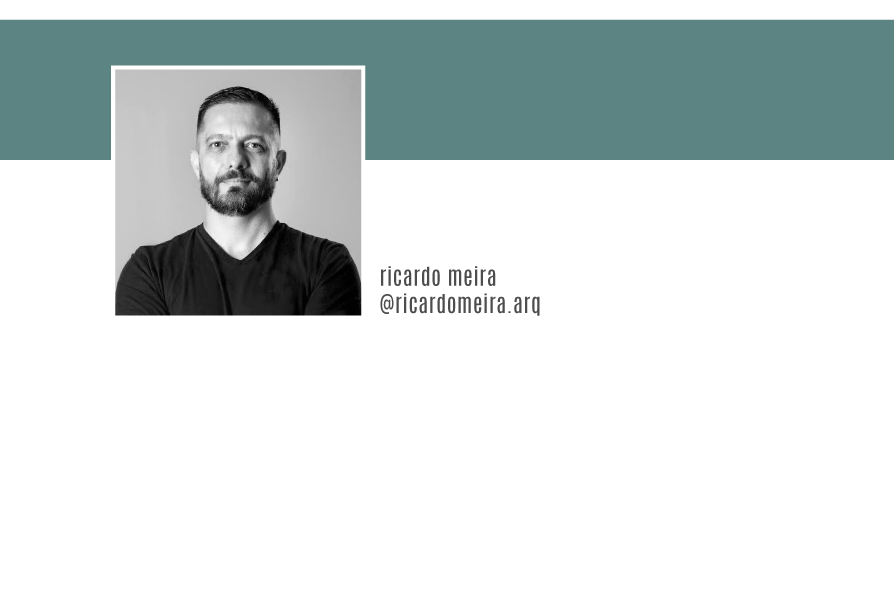14 August 2020 Why getting commission is a bad deal for everyone

by Ricardo Meira
For those who are not architects or interior designers, the expression “technical reserve” may sound strange. Famous and controversial in the professional field, the technical reserve – or TR, for those in the know – is an understatement for a financial commission paid by suppliers of materials or labor, in return for the specification or indication made by the “specifier” – another understatement to generically designate the architect or designer. After all, he creates, conceives, projects, represents, builds and …specifies.
To the detractors of the practice, the infamous TR corresponds to a bribe, a treat at the expense of the customer himself, since said practice is embedded in the costs of the product or service. According to its supporters, it is a resource that compensates for the low remuneration paid by the client for the projects and it is fair, as it is a payment for a provided service.
Article 18 of Law 12.378/10, which created the Council for Architecture and Urbanism (CAU), characterizes a disciplinary infraction “to illicitly enrich oneself, by any means, at the cost of the client, directly or through third parties”. If the term “illicit” can cause doubt, the CAU Code of Ethics and Discipline makes it clear that “the architect and urban planner must refuse to receive, under any pretext, any fee, income, remuneration, commission, bonus, advantage, retribution or gift of any kind – whether in the form of consultancy, product, merchandise or labor – offered by the suppliers of inputs to their contractors, as determined by item VI of art. 18 of Law Number 12.378, of 2010 ”.
Therefore, if you are an architect, there is nothing to be done. Unless the law is changed, receiving a commission leaves you liable to be denounced by CAU. As the Interior Designer profession, although recognized by Law 13.369/16, is not regulated and, therefore, does not have a Council or Code of Ethics, there is no provision for professional sanction. This does not exempt the professional from responding legally if their contractor feels injured. The practice violates the customer’s right to information, according to the Consumer Protection Code, as commissions inadvertently come embedded in the price of products.
Despite what the legislation says, my goal is to convince you, dear reader, that the only advantage of this practice is pecuniary. In other words, you can earn a good amount of TR “to compensate that stingy customer who does not accept to pay what your work is worth”. However, the indirect cost of this decision is not just for you, but for our entire class.
In a country where doctors win trips to congresses (always on some beach) for having prescribed a certain medicine and public construction works are usually sliced among pseudo-competitors in facade bids, by “playing the market game”, you become part of that system, even if you do not notice it.
Less than 15% of the works in Brazil are authored by legally qualified professionals. A large part of the remaining 85% of people who need our work simply do not hire us because they think we will make the work more expensive or because they understand that we are not worth the investment. This is very, very serious.
One of my duties as an architect is to provide the best possible service, to meet the client’s needs within a feasible, realistic budget. The practice of TR subverts this logic, paying more to those who are more incompetent in the economy. The more expensive the product or service, the more money the professional earns. Makes sense?
A relationship of trust must be built between professional and client. We are specialists and, as such, we make decisions based on technical, aesthetic, and also economic aspects. I am paid to decide and specify what is best for my client. There is another issue: we are paid for this by the customer. Receiving from the supplier, in addition to legally granting the “specifier” solidary responsibility for the purchased product, it has us paid twice for the same service. Makes sense?
If you cannot get paid well for your services, it is probably a matter of market positioning, sales skills, and pricing. If, in the budget, you do not consider the work of studying, researching materials and products, visiting suppliers, coordinating budgets and advising your client, quantify the work and charge for it. From your client.
In almost twenty years of profession, even though I am called silly, idealistic, or naive, I have countless cases in which I won a competition exactly for showing my client a differential that should be the rule, not the exception. It saddens me that it is still necessary to include in a proposal that I commit to comply with the Code of Ethics of my profession.
I sincerely hope that professionals and suppliers, so creative in the search for innovative technical solutions, have the same creativity to find an ethical and transparent way to build a healthy, ethical, and transparent consumer relationship. Our customers, and especially the profession, are grateful.




